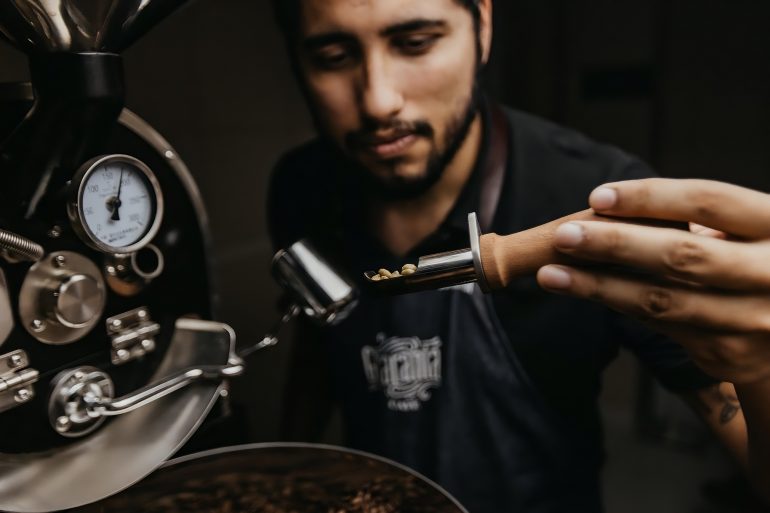‘Road to Asu Coffee Fest’ is a five-part storytelling series by The Asunción Times, leading up to the lively Asu Coffee Fest, Paraguay’s premier coffee celebration on July 12 and 13 2025. Guided by Sol and Diego, two passionate coffee enthusiasts exploring the heart of Paraguay’s specialty coffee scene, this series combines exclusive one-on-one interviews, and experiential storytelling. Join Diego Mazacotte in Episode 1: Café Guarania: The inspiring story of one of the very few coffee brands to have the honour of writing “100% Paraguayan coffee” on their packaging.
Grandmother’s warm coffee memories
Diego: ‘When I was a child, I used to gather the beans in the wild, then roast them and made coffee for my parents’, said my grandmother, 72, while sipping mate tea during a conversation I had with her a couple of weeks ago. Like many other Paraguayans, I am sure, I was surprised to hear that. Coffee beans in Paraguay?
I know of the famous Brazilian coffee, with its sweet and chocolatey notes. And of course, the Colombian coffee; bright, fruity, and acidic, cherished all over the globe. But Paraguayan coffee?
In the last decade, the number of local cafés and coffee shops exploded in Asunción. People gather around these places to try the unique blend of flavours that local roasters deliver using beans from all over the world. But what about coffee beans locally grown?
My grandmother used to collect them, which means they can be grown in Paraguayan. Of course. But if that is the case, why don’t we see more locally grown coffee? After all, “exotic” would be an excellent sales pitch. It turned out that a local company is doing exactly that.
Connecting with Francisco, owner of Café Guarani
Café Guarania is certainly a rara avis in the coffee world. The Canindeyú based company has the rare privilege to write “100% Paraguayan coffee” on their packaging. The name “Guarania” is inspired by the musical genre of the same name, created by the Paraguayan musician José Asunción Flores during the first half of the 20th century.
I found their product for the first time on the shelf of a major retailer in Asunción. Only one package was left; that was promising. And boy, it delivered. I contacted them and this interview is the result of my honest curiosity on the matter and the interesting and very insightful answers of Francisco Munizaga, owner of Café Guarania.
Committing to Paraguayan Coffee
The Asunción Times (TAT): How did the idea of creating Café Guarania come about, and what motivated you to commit to a 100% Paraguayan coffee?
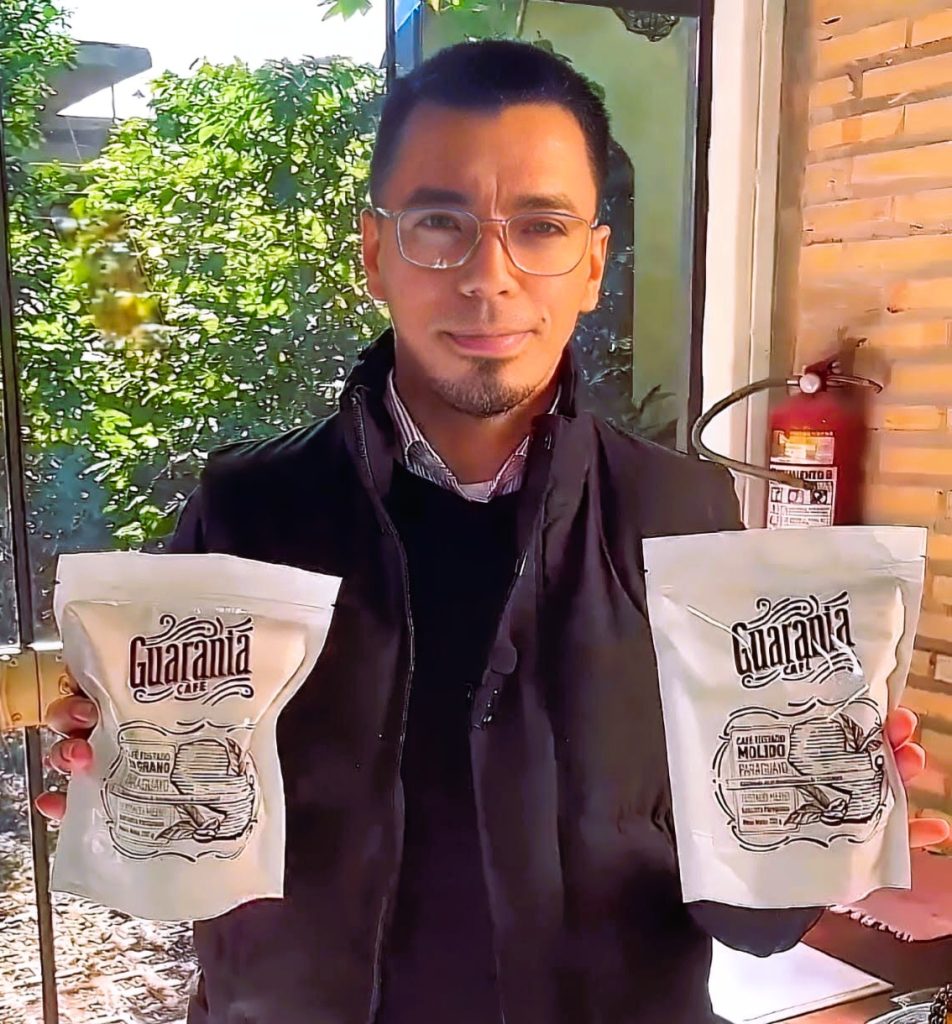
Francisco Munizaga: “First of all, we had a deep passion for coffee. Then, while visiting other countries, we noticed that the coffee business was highly diversified. Supermarket shelves were stocked with coffee from various origins, as well as speciality and artisan packages. Walking through some cities and seeing entire blocks packed with cafés, we realised that coffee was booming and that the trend would eventually reach Paraguay.
“That’s when we started thinking about the possibility of creating a company that supplied roasted, packaged coffee made with Paraguayan beans. This led us to carry out thorough research on coffee production in Paraguay.”
The history of coffee in Paraguay
Fransico found that coffee first arrived in Paraguay at the end of the 19th century through German settlers in the Emboscada and Cordillera regions.
Francisco: “Later, there was a second wave in the 1960s when Brazilian coffee growers settled in the eastern part of the country. At that time, coffee even came to represent 7% of Paraguay’s GDP. So, the question of whether coffee could grow well in Paraguay had already been answered.
“Eventually, we reached coffee producers in the north of the country, in the department of Canindeyú, where we found several hectares still being harvested — and that is where it all began. From there, we began studying the “science” of coffee in order to produce a high-quality product and maximise the potential of Paraguayan beans.”
Café Guarania’s techniques and production
TAT: How would you describe the flavour profile of your coffee, and what techniques do you use to achieve it?
Francisco: “We have a very well-balanced coffee, with chocolate and caramel notes, and with a pronounced sweetness and a medium body. A good selection of green beans is key, along with a roast with controlled time and temperature that properly develops the coffee’s natural sugars.
“A second selection after roasting is also necessary to remove any beans that did not develop well; these beans likely were not harvested at the correct ripeness, and can only be distinguished because, after roasting, they have a lighter colour and don’t taste good.
“For roasting, we use a one-kilogram roaster to ensure a uniform, high-quality roast. It is an electric roaster with air and drum temperature sensors, and air inlets and outlets that allow us to have good process control. For ground coffee, we use a burr grinder that allows for size calibration and uniformity.”
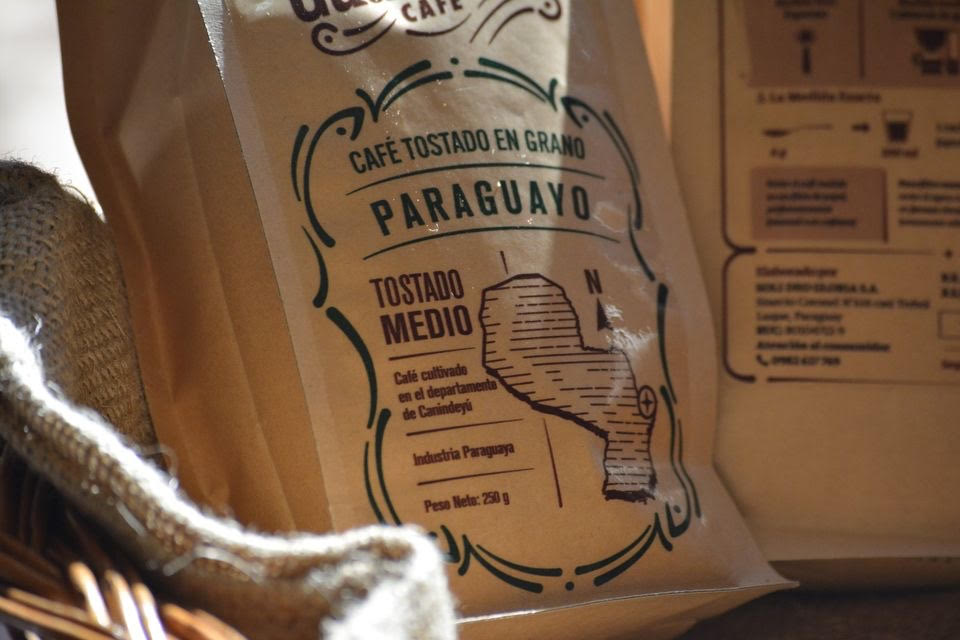
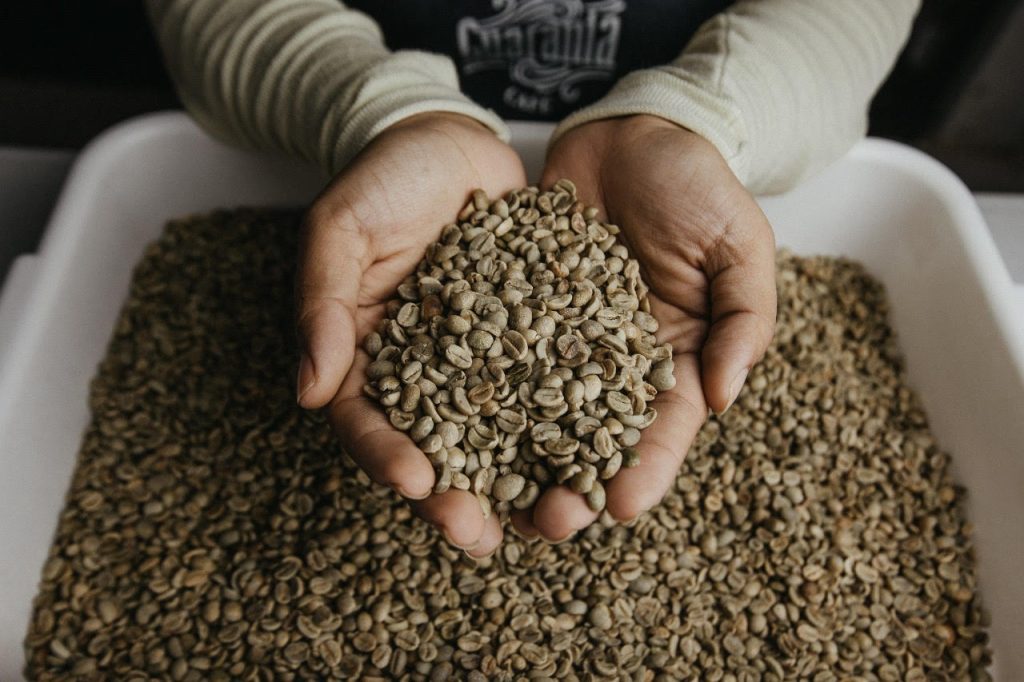
Challenges for Café Guarania
TAT: What challenges did you face in establishing a national production chain in a country where coffee cultivation is not traditional?
Francisco: Coffee cultivation used to be traditional in Paraguay, but a drop in prices during the 1990s led farmers to replace coffee plantations with cotton, soybeans, and marijuana. Nowadays, given the current selling price of green coffee beans, it is only a matter of time before coffee becomes a traditional crop again. Today, with just one hectare of coffee, a farmer can earn between 80 to 160 million guaraníes per year (around US$10,000 to 20,000 per year).”
TAT: How has your project socially impacted the producer communities in Canindeyú? And how do you balance business growth with your social and environmental commitment in the production chain?
Francisco: “New plantations of coffee have been established in the area, leading to better incomes for the producers. The price has quadrupled since we started buying their beans. We hope that increased grain purchases will improve the situation for families involved in cultivation.
“We have also started planting our own coffee trees in the Caaguazú department, where we are planting about 500 new trees every three months. This could also generate interest among local farmers as a new opportunity to improve their livelihoods.”
Strengthening coffee cultivation in Paraguay
TAT: If you could inspire a public policy based on your experience, what would you change to strengthen coffee cultivation in Paraguay?
Francisco: “Training for farmers in the eastern region where coffee can thrive. Coffee plantations require specific care to ensure the plants grow well and produce effectively. Additionally, a way could be explored to provide seeds to families interested in starting coffee cultivation. By purchasing one kilogram of seeds, which costs around Gs. 150,000 (around US$ 18.79), between 2,000 and 3,000 seedlings can be prepared to plant an entire hectare.”
TAT: How has the perception of Paraguayan coffee in the local market evolved since the launch of Café Guarania?
Francisco: “At the start, I believe there was good acceptance. We also had the opportunity to gain recognition at the Asu Coffee Fest 2019, because the barista who chose our coffee won the competition. Additionally, we won a Paraguayan Industrial Union contest that provided us with recognition and funds to purchase beans.
“Nowadays, national beans have earned the respect of baristas and coffee connoisseurs. New companies have also started betting on local beans. We are convinced that there are no bad beans, only bad processes.”
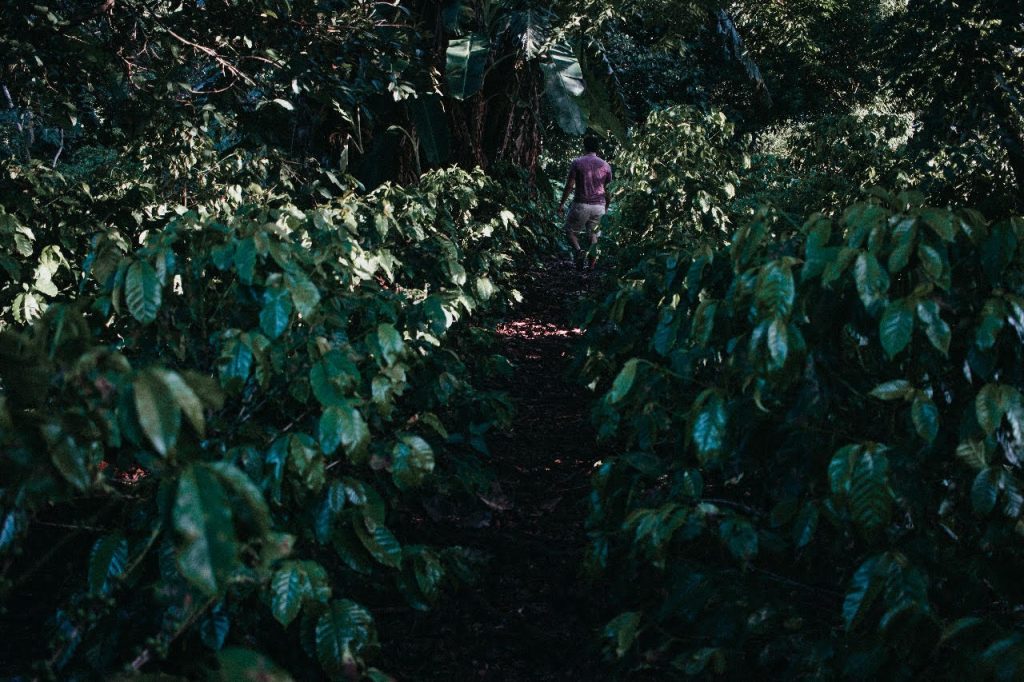
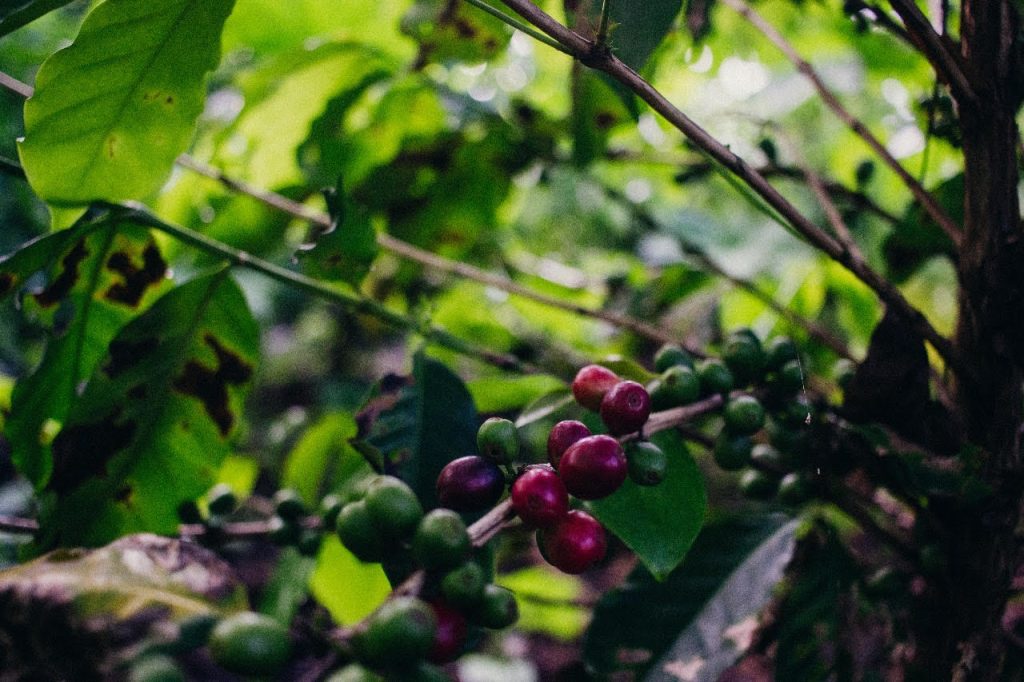
Rising demand of high-quality coffee with a national identity
TAT: How are your relationships with other entrepreneurs in the Paraguayan gastronomic or agro-industrial sector?
Francisco: “Very good. Continuous contact with other baristas and coffee shops has helped us grow, gain different perspectives, support each other, and contribute our bit. We also have good relationships with traditional Paraguayan restaurants that are increasingly seeking to offer high-quality coffee with a national identity.”
TAT: Café Guarania seems to be very present in every stage of the production. How do you use data, like customer’s feedback, to improve?
Francisco: “Sometimes constructive criticism has led us to improve processes, and we are very careful with every package that leaves the factory. There is a very demanding audience that does not forgive a change in the flavour of the final cup. Nowadays, demand exceeds our capacity, which is why we have not done marketing work to increase sales, but we will when the time comes.
“In the long term, we want to open our own coffee shop to elevate the brand and start exporting once we have coffee plantations that guarantee supply.”
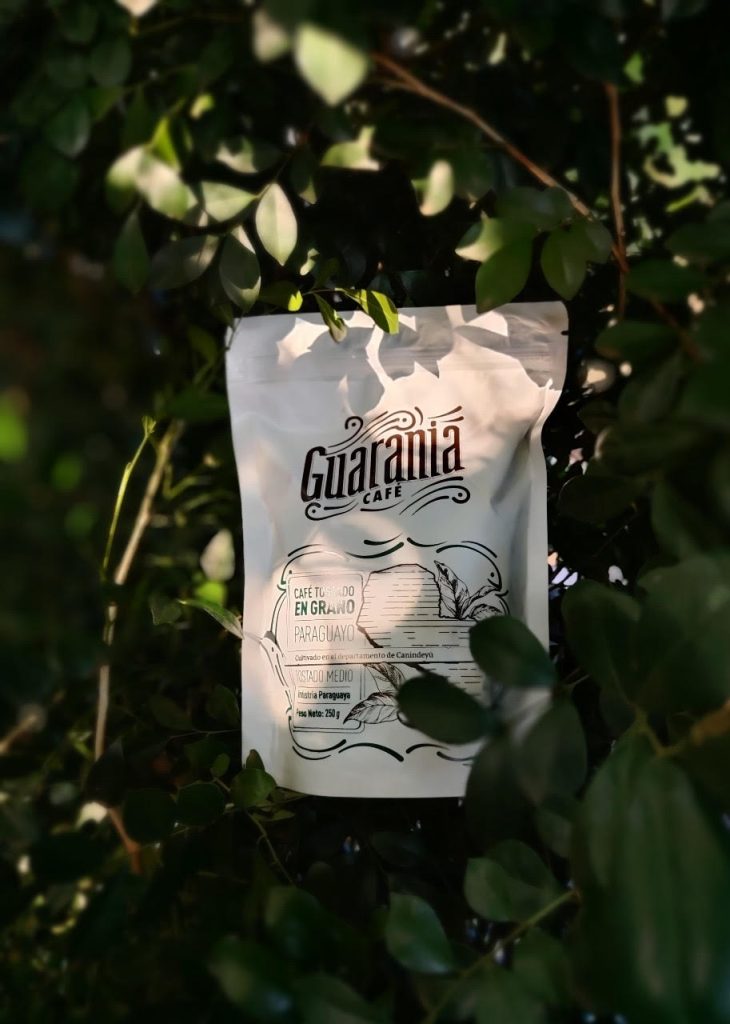
Educating the Paraguayan consumer
TAT: Do you use any strategy to educate the Paraguayan consumer about speciality coffee?
Francisco: “In the early years, we participated in events and tastings, but lately, we have not. Fortunately, there are baristas who have been working for years to educate the general public about coffee tasting and barista skills. One of them who helped us a lot, is Alejandro Murcia; without his support, we would nott have reached the product we have today, because we received a lot of training from him.”
TAT: How do you perceive Paraguayan cultural identity reflected in your brand and product?
Francisco: “We see national coffee as the Guarania, refined, with soft notes for a cultured and knowledgeable audience. “In terms of gastronomy, national coffee offers the flavour that Paraguayans seek: not too bitter, not too acidic, but rather something sweet without needing sugar. I believe this is reflected in the success of cocido, an infusion made of Yerba Mate, very popular in Paraguay and the Southern Cone.”
Got thirsty?
For more information find Café Guarania on Instagram. Got thirsty? El Café de Porfirio offers a unique blend of coffee, art, and culture in Asunción. El Café de Porfirio offers VIP Members of The Asunción Times, 15% discount on all – one of many VIP Member Benefits. To redeem this exclusive discount, VIP members just have to show their VIP membership card when making a payment.
Continue reading: ‘Road to Asu Coffee Fest’ Episode 2: Tótem Tostadores’ Expert Roast Fuels Paraguay’s Coffee Renaissance.

